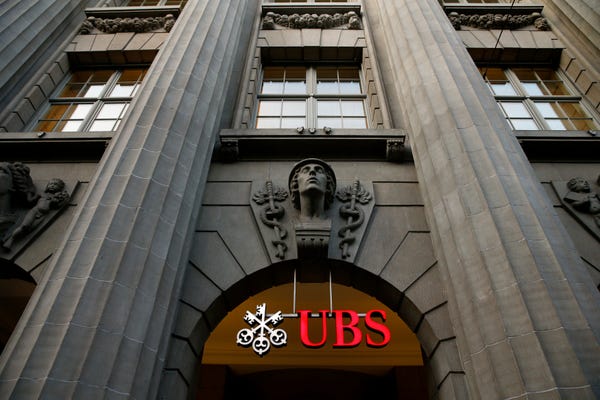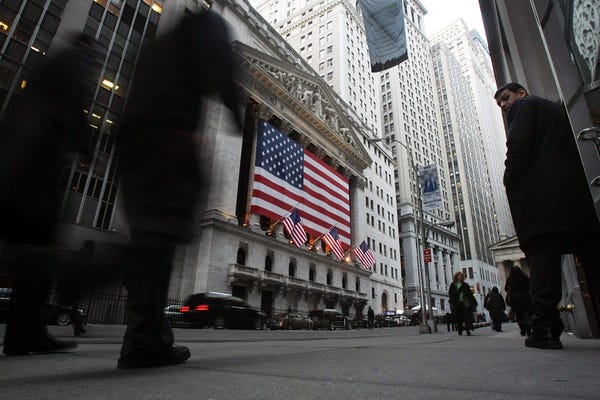## Is 2025 the Year the Wheels Fall Off?
A chill wind is blowing through the halls of Wall Street, whispering the dreaded “R” word: recession. While most economists are cautiously optimistic, a growing chorus of bearish forecasters are sounding the alarm, predicting a downturn as early as 2025.

These aren’t just armchair analysts – they’re veterans with decades of experience, and they’re pointing to a confluence of factors that could push the economy into a tailspin.
From soaring interest rates to a potential housing crisis, these are the warning signs they’re watching, and what they believe could trigger a recession in the not-too-distant future. Buckle up, because things are about to get bumpy.Potential GDP Contraction and Unemployment Surge
Navigating Uncertainty: Implications for Businesses and Consumers

The specter of a recession looms large, casting a shadow of uncertainty over both businesses and consumers. Bearish forecasters, citing the escalating trade war and its potential ripple effects, warn of a significant contraction in GDP and a surge in unemployment. This potential economic downturn could have profound implications for various sectors, prompting businesses to adapt their strategies and consumers to re-evaluate their financial plans.
Mark Zandi, chief economist at Moody’s Analytics, estimates a greater than 50% chance of a global recession starting this year. He attributes this risk primarily to the Trump administration’s trade policies, which he believes are pushing the global economy towards a downturn. According to Zandi, if the US fails to de-escalate the trade war, the manufacturing, transportation, distribution, and agricultural sectors would be among the first to feel the impact. This slowdown could then spread to the consumer discretionary sector, leading consumers to cut back on spending in areas like entertainment, recreation, and healthcare.
JPMorgan Chase, another prominent financial institution, shares a similar pessimistic outlook. The bank has raised its probability of a global recession from 40% to 60% in light of the escalating trade tensions. Analysts at JPMorgan argue that Trump’s tariffs have made US trade policy “decisively less business-friendly” than initially anticipated. They warn that if left unchanged, the US tariff rate could rise to 24%, equivalent to around 2.4% of the US’s total GDP. “We thus emphasize that these policies, if sustained, would likely push the US and possibly global economy into recession this year,” the bank stated in a recent note.
The potential economic fallout could be substantial. JPMorgan’s chief US economist, Michael Feroli, estimates that GDP could contract by as much as 1% over the third quarter and half a percent in the fourth quarter. This contraction, coupled with the potential for retaliatory measures from other countries, could lead to a decline in business sentiment and disruptions in supply chains. The unemployment rate, meanwhile, could rise as high as 5.3%, according to Feroli’s projections.

Adapting Strategies: How Businesses Can Prepare for a Potential Recession
In the face of potential economic headwinds, businesses must be prepared to adapt their strategies and navigate the uncertain terrain. Here are some key steps that businesses can take to mitigate the risks of a recession:
- Strengthen Financial Planning: Businesses should review their cash flow projections, identify potential cost-saving measures, and ensure they have sufficient liquidity to weather a potential downturn. This may involve negotiating favorable payment terms with suppliers, exploring new financing options, or reducing non-essential expenses.
- Diversify Revenue Streams: Relying heavily on a single product or service can be risky during an economic downturn. Businesses should consider diversifying their revenue streams by expanding into new markets, developing new products or services, or exploring strategic partnerships.
- Focus on Customer Retention: Maintaining strong customer relationships is crucial during challenging times. Businesses should prioritize customer retention efforts by offering excellent customer service, building loyalty programs, and providing personalized experiences.
- Invest in Innovation: Recessions often present opportunities for businesses to innovate and differentiate themselves from competitors. Investing in research and development, exploring new technologies, and streamlining operations can help businesses emerge from a downturn stronger than before.
- Maintain an Emergency Fund: Having a financial safety net is essential during any economic downturn. Aim to have 3-6 months’ worth of living expenses in an easily accessible account to cover unexpected expenses or job loss.
- Review Investment Portfolios: Recessions often lead to market volatility. It’s important to review your investment portfolio and consider rebalancing to align with your risk tolerance and financial goals. Consulting with a financial advisor can be helpful in making informed decisions.
- Avoid Panic Selling: Market downturns can be tempting to panic and sell investments, but this can often lock in losses. Stay disciplined and stick to your long-term investment strategy.
- Explore Debt Management Options: If you’re struggling with debt, a recession can exacerbate financial difficulties. Consider exploring debt consolidation options, negotiating with creditors, or seeking credit counseling.
- Fiscal Stimulus: Increasing government spending on infrastructure, education, or social programs can help boost demand and create jobs, stimulating economic activity.
- Tax Cuts: Reducing taxes for individuals and businesses can increase disposable income and encourage investment, supporting economic growth.
- Monetary Policy Easing: Central banks can lower interest rates to make borrowing cheaper, encouraging investment and spending.
- Trade Policy Adjustments: Governments can work to resolve trade disputes and reduce tariffs, promoting international trade and economic growth.

Financial Planning: Managing Savings and Investments in Volatile Times
For consumers, a potential recession can trigger anxiety about their financial well-being. Managing savings and investments wisely becomes crucial during periods of economic uncertainty. Here are some strategies to consider:
Consumer Behavior: Shifts in Spending Habits and Economic Anxiety
Recessions often lead to a shift in consumer behavior as individuals become more cautious with their spending. This can have a ripple effect throughout the economy, impacting businesses across various sectors.
As economic uncertainty mounts, consumers tend to prioritize essential spending on necessities like food, housing, and healthcare. Discretionary spending, such as on entertainment, travel, and luxury goods, often takes a hit as consumers tighten their belts. This shift in spending patterns can lead to decreased revenues for businesses that rely on discretionary consumer spending.
Furthermore, economic anxiety can lead to increased savings and reduced borrowing. Consumers may become more hesitant to take on new debt, which can impact industries like retail, automotive, and housing. Businesses that cater to these sectors may need to adjust their marketing strategies and offer more competitive pricing to attract customers.
Beyond the Headlines: A Look at Market Optimism and Potential Countermeasures
Wall Street’s Bullish Predictions: 8% Gains Projected for 2025
Despite the looming threat of a recession, Wall Street remains optimistic about the stock market’s performance in 2025. Analysts predict an average gain of about 8% for the S&P 500, signaling continued confidence in the long-term prospects of the US economy.
This bullish outlook is fueled by several factors. Firstly, the S&P 500 has already rebounded significantly since its October 2022 bear market low, demonstrating its resilience and the market’s ability to absorb shocks. Secondly, corporate earnings have been robust, exceeding expectations in recent quarters. This strong earnings performance suggests that businesses are well-positioned to navigate economic challenges and continue to generate profits.
Thirdly, the Federal Reserve’s monetary policy stance is expected to remain accommodative, with interest rates remaining relatively low. This supportive environment should continue to encourage investment and economic growth.
Navigating the Paradox: Balancing Caution with Growth Opportunities
The apparent paradox between bearish economic forecasts and bullish stock market predictions highlights the inherent complexities of navigating economic uncertainty. While the risks of a recession are real, investors and businesses should not solely focus on the potential downsides. It is essential to strike a balance between caution and optimism.
Adopting a diversified investment strategy, focusing on companies with strong fundamentals, and staying informed about economic developments can help investors mitigate risks while capitalizing on potential growth opportunities. Similarly, businesses should be prepared to adapt their strategies and seize opportunities that may arise during a downturn.
Policy Solutions: Can Governments Mitigate the Risks of a Recession?
Governments have a crucial role to play in mitigating the risks of a recession and supporting economic stability. Here are some policy measures that governments can consider:
Conclusion
The Recession Looms: A Call to Action for Business Leaders and Investors
As forecasters sound the alarm on a potential recession in 2025, the business community is left to ponder the implications of such a downturn. According to a recent Business Insider report, bearish forecasters are eyeing several key indicators that suggest a recession may be on the horizon. These include a cooling housing market, rising interest rates, and a decline in consumer spending. The report highlights the warnings of economists such as Mark Zandi, who believes that the US economy is vulnerable to a recession in 2025 due to a combination of factors, including a decline in business investment and a slowdown in global trade.
The significance of these warnings cannot be overstated. A recession would have far-reaching consequences for businesses, investors, and individuals alike, from reduced profits and layoffs to decreased consumer spending and reduced economic growth. As such, it is imperative that business leaders and investors take these warnings seriously and begin to prepare for the worst. This may involve reviewing budgets, diversifying portfolios, and investing in strategies that can help mitigate the impact of a recession. By being proactive and taking a long-term view, businesses and investors can ride out the storm and emerge stronger on the other side.
As we look to the future, it is clear that the business community must be prepared for a potential recession in 2025. The key to success will lie in adaptability, resilience, and a willingness to take calculated risks. As the saying goes, “buckle up” – it’s time to prepare for turbulence ahead. Will you be ready when the storm hits, or will you be caught off guard? The choice is yours.
